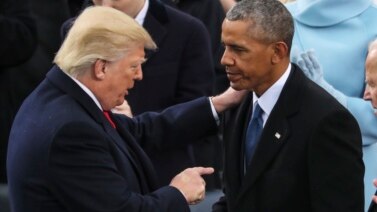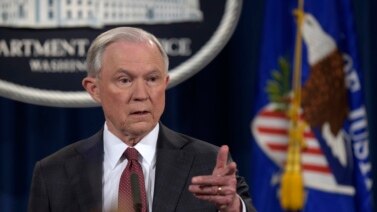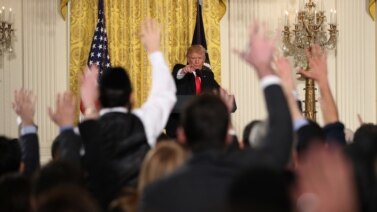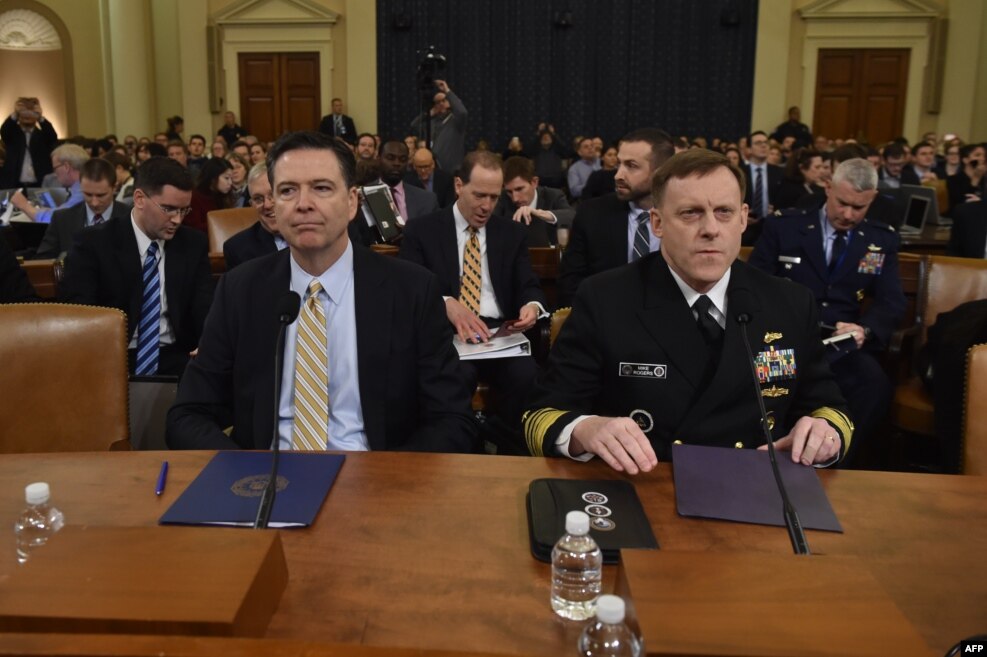
FBI Director James Comey confirms that his agency is investigating possible links between the Trump campaign and Russian officials.
Comey also says that he has “no information” to support claims by President Donald Trump that the government wiretapped his phones during the 2016 campaign.
The Federal Bureau of Investigation (FBI) is the country's top criminal investigative agency. Comey was speaking Monday during a hearing of the House of Representatives Intelligence Committee.
Earlier this month, Trump sent a series of tweets accusing former President Barack Obama of ordering wiretaps of his offices at Trump Tower in New York City.
Comey said the FBI and the U.S. Department of Justice had both “carefully” investigated Trump's claim.
“With respect to the president's tweets about alleged wiretapping directed at him by the prior administration, I have no information that supports those tweets.”
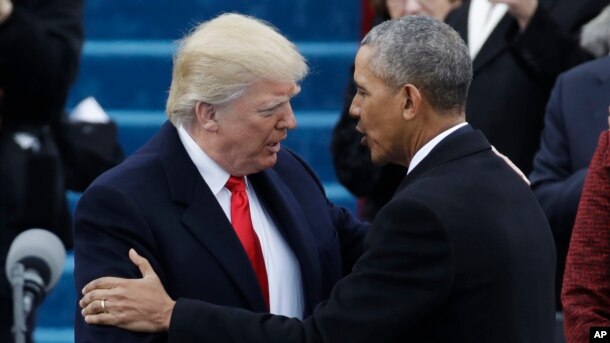
He added that Department of Justice officials asked him to inform the committee that they had also reached the same conclusion about the Trump tweets.
Comey said the investigation is ongoing, the work is “complex,” and he could not say when it would be completed.
“But they will always do it well no matter how long that takes. I can promise you we will follow the facts wherever they lead.”
So far, White House and senior intelligence officials have offered no information to back up Trump's claim of wiretapping. A spokesman for Obama has called the allegation "simply false.”
Speaking about the wiretapping process, Comey said no individual can order surveillance of an American. He said a court must approve wiretaps after an application process is completed.
Confirmation of investigation into possible tie with Russia
Comey officially confirmed for the first time that the FBI is investigating possible links between Trump campaign officials and the Russian government. He said investigators were looking into “whether there was any coordination between the campaign and Russia's efforts.”
In keeping with FBI policy, Comey said he was not able to publicly comment on specific parts of the investigation.
The House Intelligence Committee is one of several congressional panels investigating possible Russian influence during the U.S. presidential election.
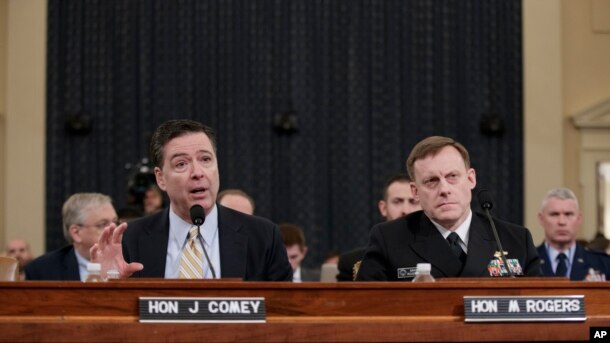
U.S. National Security Agency Director Michael Rogers also testified during Monday's hearing. He said he stands by an earlier conclusion of U.S. intelligence agencies that Russia did attempt to influence the 2016 election with the goal of electing Trump.
Comey said the intelligence community conclusion had determined that Russia “hated” Hillary Clinton and wanted to harm her chances of winning the election.
He added that investigators believed Russian officials saw the possibility early on that Trump could win the election. Later, when most opinion surveys showed Clinton had a wide lead over Trump, Russia focused all its effort on harming her campaign, Comey said.
U.S. intelligence agencies concluded that Russia was responsible for leaking emails of U.S. people and political institutions.
Thousands of emails were leaked by anti-secrecy group WikiLeaks from the Democratic National Committee (DNC). Private emails from a top campaign adviser to Democratic presidential candidate Hillary Clinton were also leaked. The emails showed embarrassing, behind-the-scenes efforts of Democratic officials to help Clinton win the party's nomination.
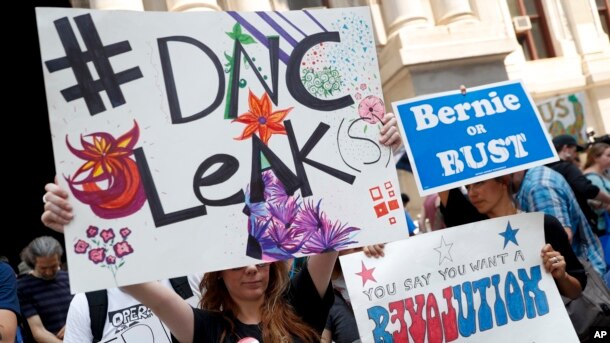
The U.S. intelligence community concluded that Russian President Vladimir Putin ordered the hacking into computers at the DNC. The Trump administration has denied that any campaign officials cooperated with Russian officials in that cyberattack.
Before Monday's hearing started, Trump sent out a series of tweets denying that his campaign had cooperated with Russia.
“The Democrats made up and pushed the Russian story as an excuse for running a terrible campaign. Big advantage in Electoral College & lost!” he tweeted. “The real story that Congress, the FBI and others should be looking into is the leaking of Classified information. Must find leaker now!” he wrote.
The Democrats made up and pushed the Russian story as an excuse for running a terrible campaign. Big advantage in Electoral College & lost!
— Donald J. Trump (@realDonaldTrump) March 20, 2017
Both Comey and Rogers addressed the issue of leaks, saying they are an important part of their work and will be fully investigated.
“Leaks of classified information are serious, serious federal crimes for a reason. They should be investigated and, where possible, prosecuted in a way that reflects that seriousness, so that people understand it simply cannot be tolerated.”
The two officials said no evidence had been found that Russian cyber attackers had changed any actual vote numbers in key states during the election.
I'm Bryan Lynn.
Bryan Lynn wrote this story for VOA Learning English, based on reports from the Associated Press, VOA News and other sources. Hai Do was the editor.
We want to hear from you. Write to us in the Comments section, and visit our Facebook page.
Words in This Story
wiretap - v. place a device on someone's phone to secretly listen to their calls
complex - adj. involving many different, but connected parts
surveillance - n. act of watching someone carefully, especially by police of government agencies
leak - n. disclosure of information not previously known
embarrassing - adj. something that makes someone feel ashamed or foolish
tolerate - v. allow something to exist, happen or be done

